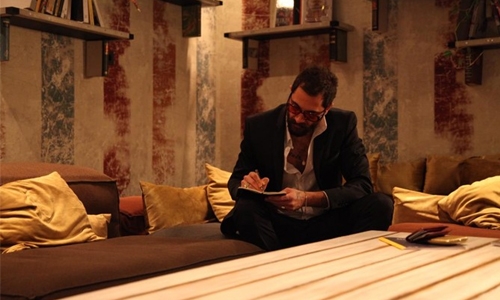Rocker-turned-poet Nader Mansour releases debut collection
Just over five years ago, the Beirut-based Wanton Bishops — a musical vessel for the creative vision of charismatic frontman Nader Mansour — took the region by storm with their Sixties-Psychedelia-tinged, visceral variety of blues-rock and their critically acclaimed debut album “Sleep With The Lights On.” After a trip to America to explore the roots of Mississippi blues, the singer-guitarist returned to Lebanon looking to reinvent the Bishops’ sound.
2016’s “Nowhere Everywhere” EP pushed “our blues-induced rock and roll down an ethnic electronic highway,” he said at the time. Now, the mercurial talent is reinventing himself once more with the cautiously titled “Lastoucha3iran” (I am Not a Poet) — a book of Arabic-language poetry, which he launched on November 7. An unexpected encounter at the local library first led him to consider publishing his work: “I went in to print off a few of my poems, but, brute that I am, I jam the machine,” he told Arab News.
“This old lady walks toward me with such grace, unjams the paper, starts reading, and with a mixture of disdain and admiration looks at me and says, ‘How can such a savage write such beautiful words? You should publish them.’ And so the idea was born.” His initial impetus to explore writing verse was wrapped in “a healing process from a failed relationship (which) ended up being an introspective exploration that taught me a whole lot about myself, about others, and about our generation in general.”
He’s particularly fond of “Qasaman Bi Allah,” a poem he dubbed an “ultimate anthem of despair, an oath I took to never love anyone else. Now I know it’s not true, but at the time it felt so definite.” Mansour is clearly liberated by his newfound status as a poet. “I’m claustrophobic, man! You can’t keep me in a cage,” he declared exuberantly. He dedicates the book to all the members of his generation, he explained: “It resembles them, it talks about them, and to them.”
Related Posts

